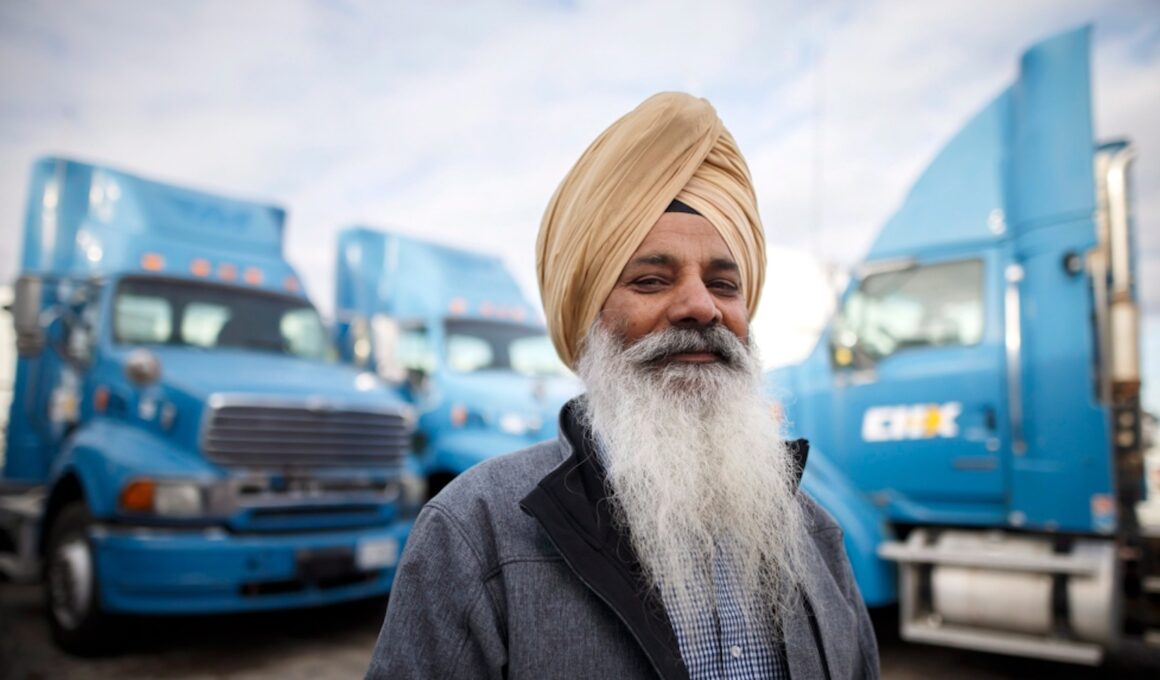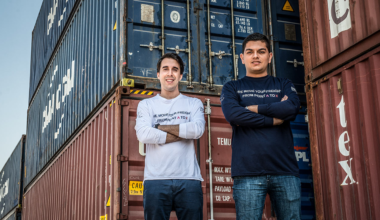In the 1990s, a turbaned Indian man would have attracted stares in many parts of America, but a lot has changed since then. The Sikh indian trucking community is now a force to be reckoned with. In a relatively short time, they have managed to launch truck companies, trucking schools, dhabas (Indian-style pit stops for truckers), truck washes, and small religious shrines for truckers.
The community also founded The North American Punjabi Trucking Association (NAPTA). The organization’s members include both Hindus and Muslims from the state of Punjab, which was divided between India and Pakistan when the subcontinent gained independence from Britain.
“Historically, the Sikhs have been the dominant players in Indian trucking,” says writer Rajat Ubhaykar, whose book Truck De India looks at the lives of truck drivers. “This traditional competence has led many migrants to take up trucking, which in the USA is often a more comfortable, respectable, and well-paid job than it is in India.”
From humble origins to big businesses
During the first wave of Sikh immigration to the U.S., young men generally took up jobs at convenience stores or found work as cab drivers. However, a few entrepreneurial people, such as Phoenix-based Sunny Samra, entered the trucking business. Starting out with a single truck, he established Legend Transportation.
Since its launch in 2008, the company has built up to a fleet of over 700 trucks and 1200 dry vans. Legend Transportation has operations in 11 states, located in the southwestern and western regions of the country.
Rashpal Dhindsa, co-founder of a California-based Dhindsa Group, migrated to the U.S. in the late 1980s, and purchased a truck a few years later. Along with his partner Varinder Sangha, Dhindsa bought three more trucks and went on to become a multimillion-dollar enterprise after their incorporation.
Business expansion in India
The entrepreneurial spirit has led many Sikh-Americans to invest in the ever-growing trucking and logistics industry in India. While taking notes for his book in a truck-assembling plant, Ubhaykar came across North American Sikhs supervising work on trucks that would operate in India.
“There are America-returned Sikh truck owners-patriarchs with paunches protruding out of colorful kurtas and their progeny sporting trendy faded jeans and branded J-Crew t-shirts,” Ubhaykar wrote in his book.
Challenges remain
Sikhs’ turbaned appearance and brown skin sometimes confuse Americans, who mistake them for religious Muslims. In the wake of 9/11, several Sikhs were victims of ethnically-motivated violence across the United States. Racial discrimination continues to be a problem for both Sikh entrepreneurs and truck drivers.
An entrepreneur in his mid-40s said he had to deal with the words “Osama Bin Laden,” “terrorists” and “ISIS” spray-painted on his trucks. Requesting anonymity, he added that his drivers faced borderline violence in many parts of the country.
The entrepreneur was keen to brush this off, however, saying the kind of success he achieved in the U.S. is unthinkable in a country like India, where red tape and corrupt bureaucracy often prove insurmountable barriers for small and medium-scale businesses.
Investing in the community
Unlike in the 90s, when Samra and Dhindsa had very little financial support or backing for their business idea, these days the Sikh community is often ready to help their members with loans, jobs, and immigration.
Ubhaykar adds that continued development of Sikh networks in the U.S. has made it easier for newcomers to find a foothold in the industry through access to credit and training.
Given the growing shortage of truckers, estimated at 150,000, and a growing demand for truck delivery during the pandemic, many Sikh immigrants see a world of opportunity in the U.S.









1 comment
Excellent article. Congratulations on the information. 72116774